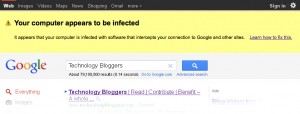So do you deal with a lot of business cards? Do you have a Rolodex sitting pretty at your desk? Do you spend a lot of time browsing your card stack to find say, contact details of a nearby car mechanic, only to discover it later in your wallet? If yes, then you have got to buy the WorldCard Mobile app for iPhone.
 WorldCard Mobile, developed by PenPower Inc. is a business card scanner and management tool. All one has to do is point the camera and take a picture. The app scans the card using optical character recognition (OCR) to label all the fields of the business card and uploads them to the phone book. Now this is a time saver and a pretty nifty job from the developers, only I wish, I knew of this earlier.
WorldCard Mobile, developed by PenPower Inc. is a business card scanner and management tool. All one has to do is point the camera and take a picture. The app scans the card using optical character recognition (OCR) to label all the fields of the business card and uploads them to the phone book. Now this is a time saver and a pretty nifty job from the developers, only I wish, I knew of this earlier.
Now all is not gold with the app. I tested about 20 different cards each with different styling, graphics and color combinations and would say almost 80% of the cards were recognized spot-on, except for a few that came with dark color schemes, uncommon names etc. needed manual re-entering.
Also, I noticed that the lighting of the environment in which the cards were captured also affected the recognition and would recommend doing your scans in a brightly lit-up room, when you capture cards using the app.
One more point to be talked about is the user interface of the app. A simpler easy-to-use user interface with intuitive help features will certainly take the app to the next level. The app has already won a lot of deserving accolades and a better UI will certainly prove to be fruitful.
Final thoughts are, if you deal with a lot of business cards, then this app is a must have. The app works great and is available for £3.99 in the iTunes store. You can download the WorldCard Mobile app from iTunes here. Go try it out and let know of your thoughts in the comments section.

